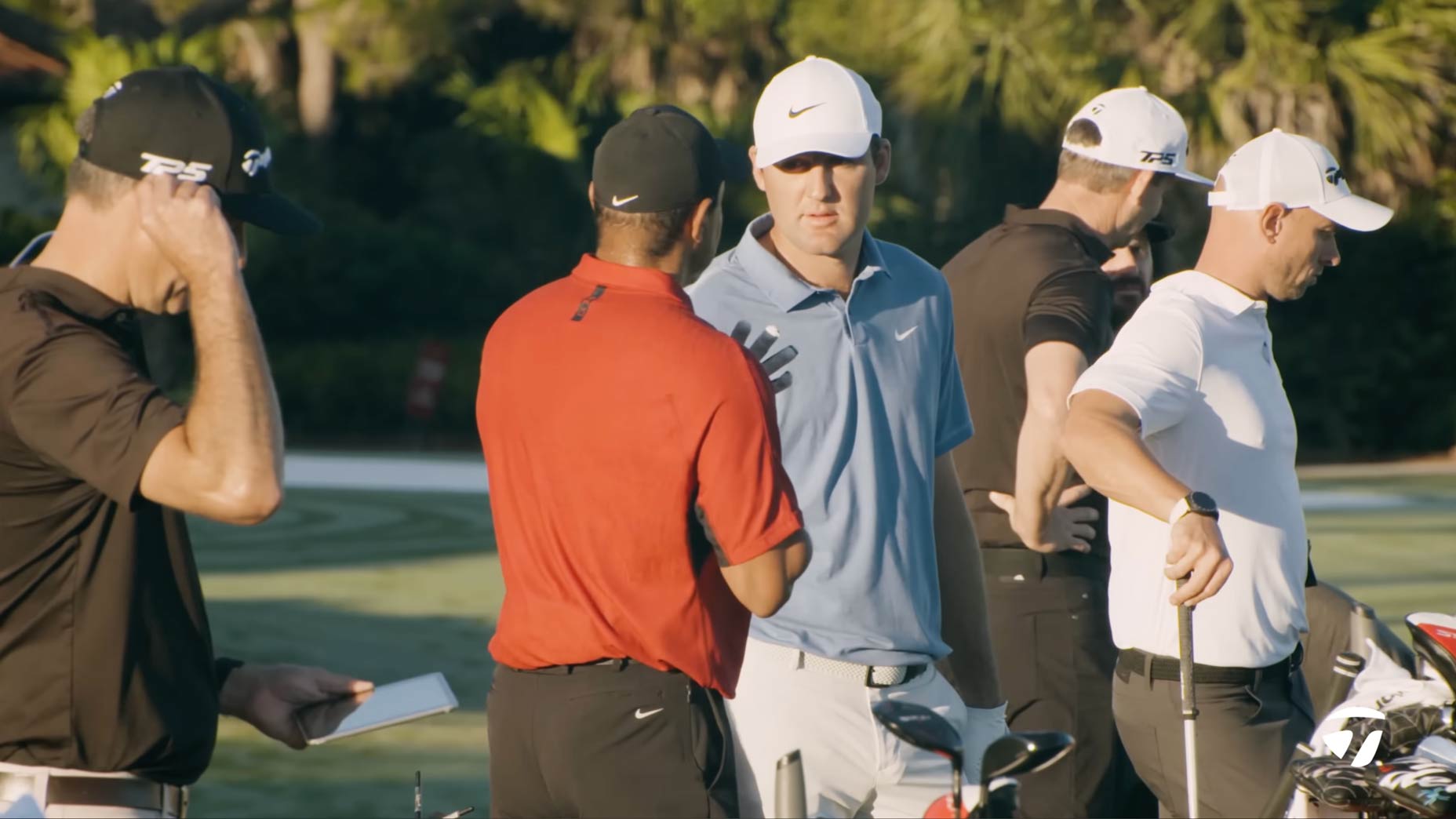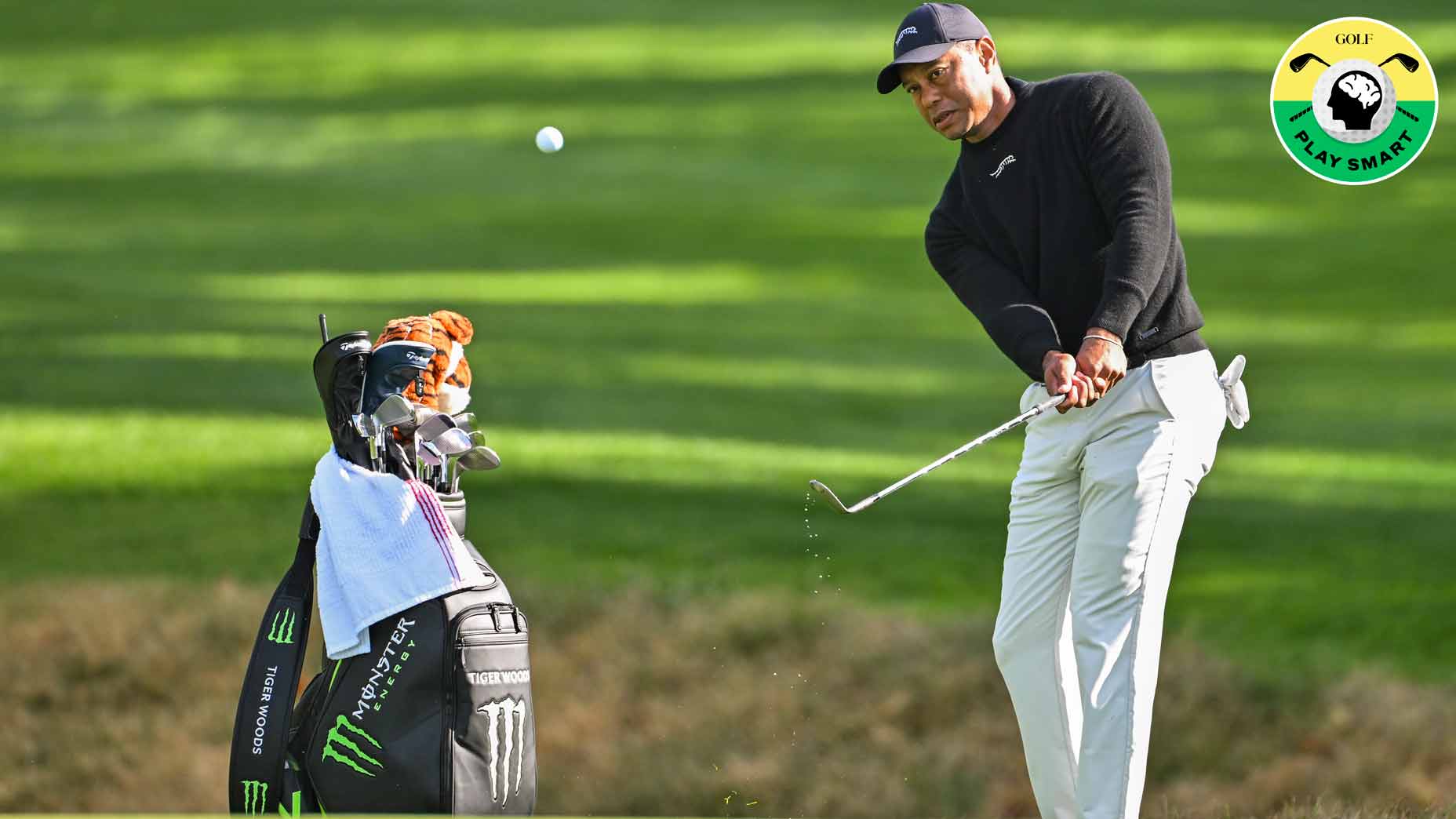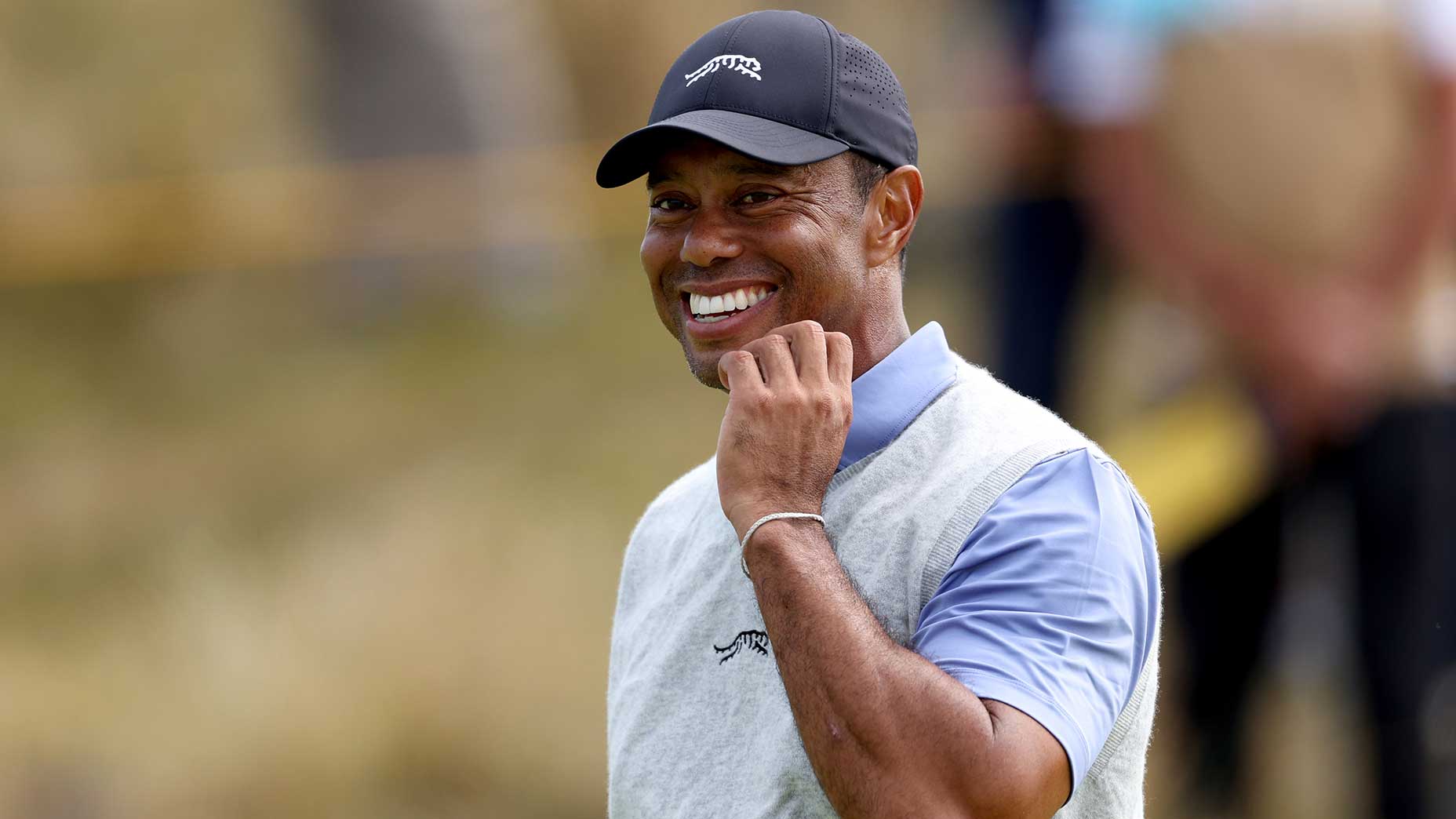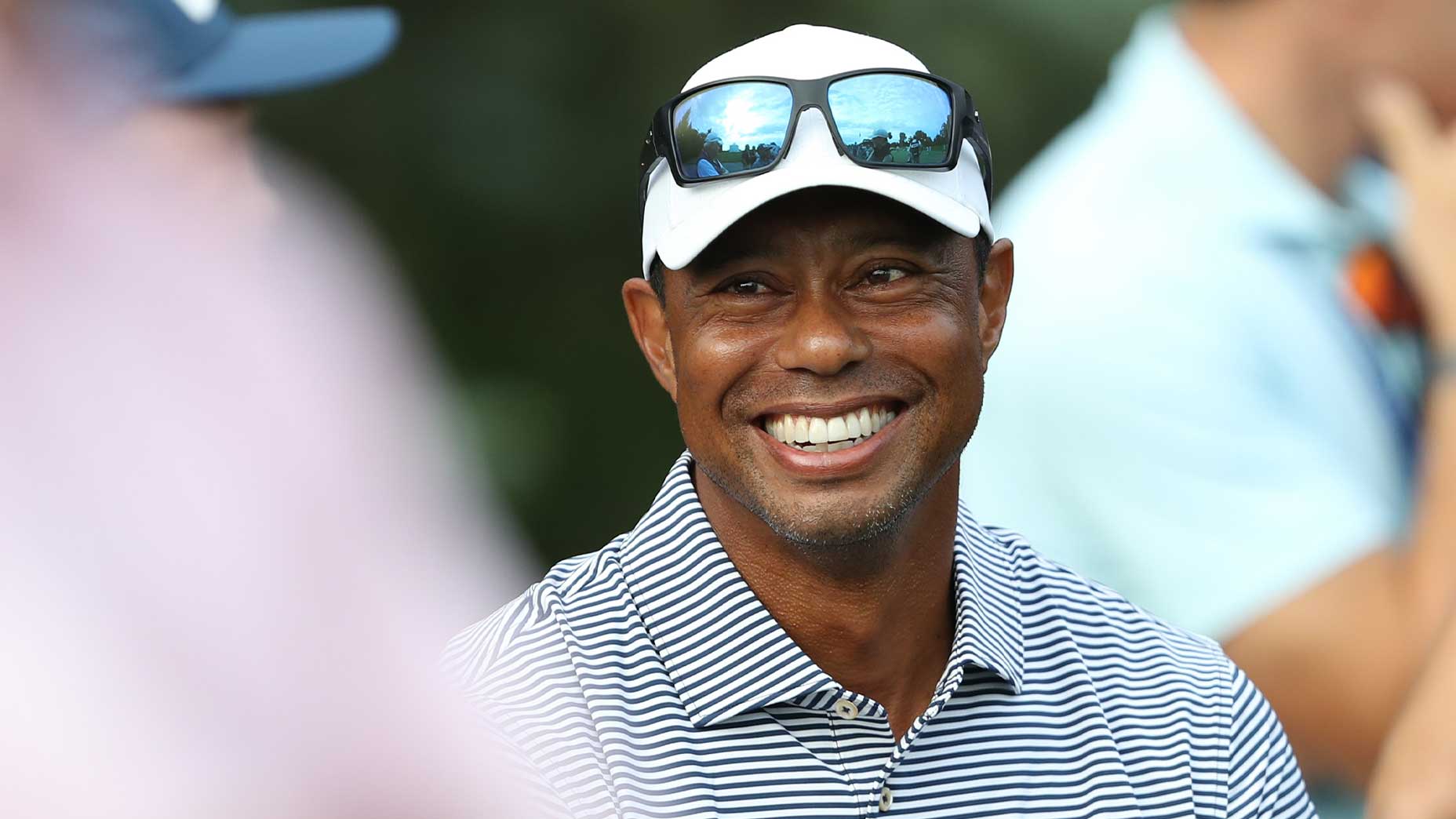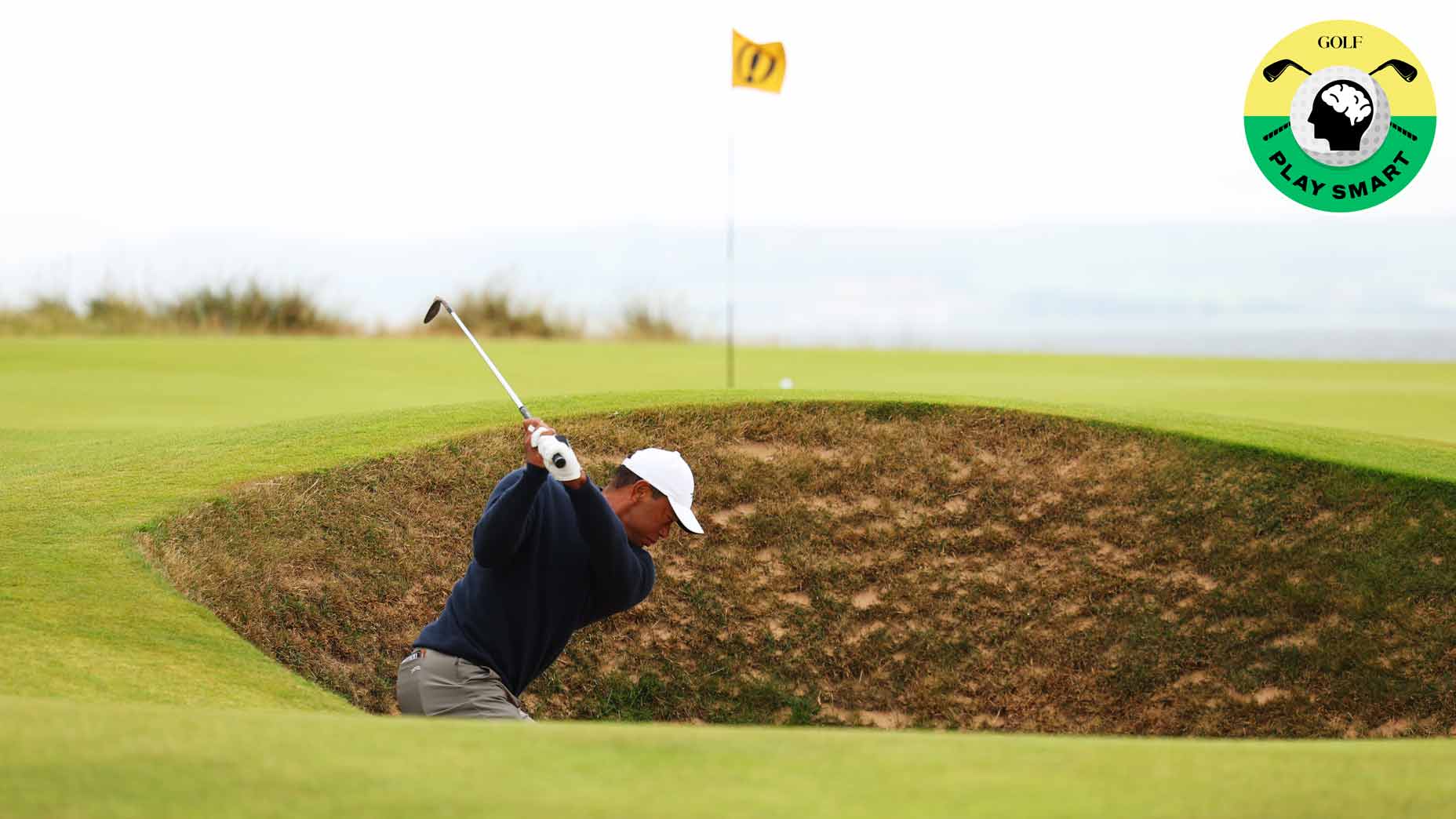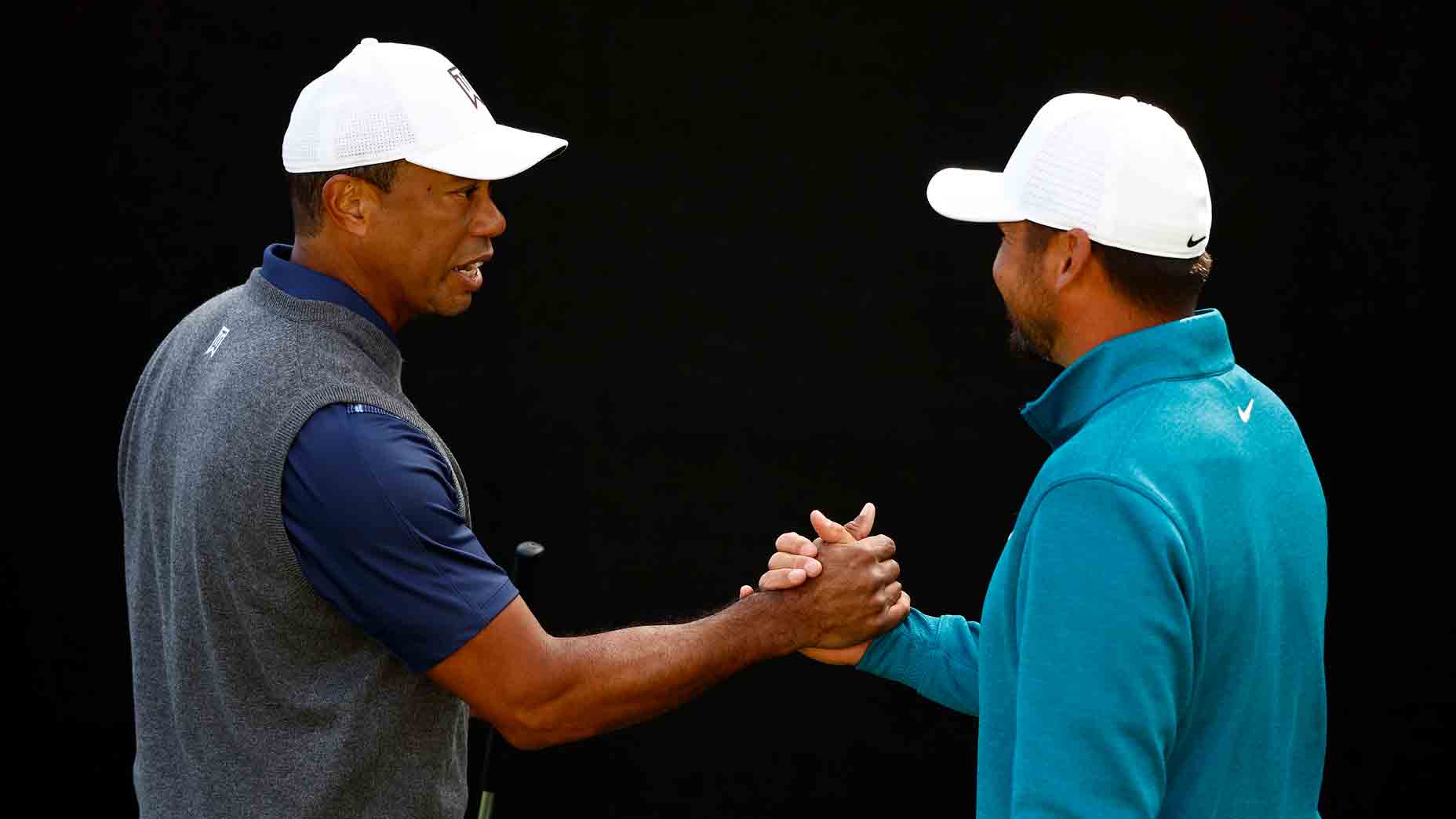This story about young Tiger Woods’ prodigious power is hard to fathom
- Share on Facebook
- Share on Twitter
- Share by Email
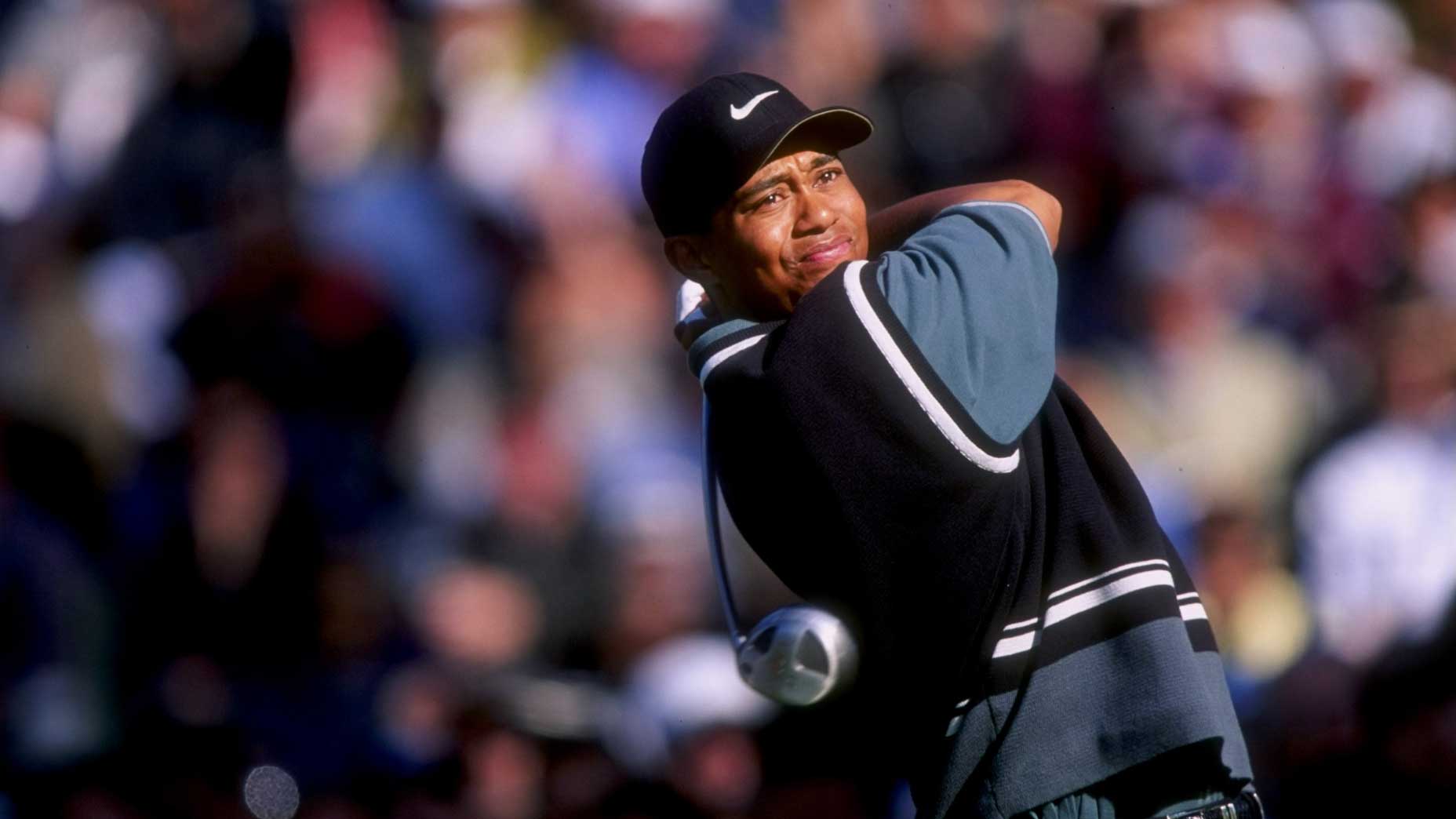
Tiger Woods' arrival on the pro golf scene changed the way a lot of people thought about the golf swing, world-famous instructors included.
Getty Images
You’ve heard nearly all the Tiger Woods stories before. Especially about young Tiger Woods. About how he came in and changed the game. But have you ever heard the story about how he changed the perception of speed and power via…his shoelaces?
This was a new one to us, courtesy of Sam Reeves, a retired cotton merchant who has lived a lengthy life in the game . Reeves is 88, but still plays frequently. His home clubs are Seminole, on the East Coast, and Cypress Point, on the West Coast. And he happens to be best pals with Butch Harmon, one of the greatest coaches of all time.
On a recent episode of the Any Given Monday podcast, Reeves and Harmon turned back the clock — with host Ryan French (@ACaseOfTheGolf1) and longtime golf writer Michael Bamberger — to the mid-1990s when woods arrived on the scene. What more than anything did Woods bring to the game? A commitment to swing speed. That’s what Reeves recalls of the Woods who started working with Harmon at that time.
“I was there at Lochinvar when Tiger came,” Reeves said of the Houston-area club where Harmon worked. “See, no one had ever seen speed like that before. The mantra was ‘Slow it down and hit it easier, blah blah blah. Keep your head down.’ No one had ever seen Tiger speed.
“Butch was the first one that saw this speed. Butch knows, and I was there, he was so powerful with his feet, he popped the shoelaces in his shoes one time, hitting from the ground.”
Wait, what? Woods’ swing pushed so much force into the space between his body and the ground that he tore right through his laced-up shoestrings?! That’s some Hulk-grade stuff.
“Remember that, Butch?” Reeves continued. “He had broken the shoelaces on his shoes. Now, Michael. The force of doing that. The kinetic force, that’s unheard of. So now you’ve got a man that’s trying to take that. Butch ain’t gonna say this. I really think when Tiger left Butch, I think the mistake he made was going to a teacher that did not know how to teach speed. That’s a layman’s feeling. It’s hard to teach speed. Particularly in the area which you’re saying, Michael. Where people say, ‘Don’t swing it hard. Swing within yourself. Blah blah blah.’ How about these kids swinging now?”
Reeves is on to something. The modern player is taught to swing hard. To use every corner of his or her swing for speed. To strengthen various muscles that professionals of the 80s and 90s never thought about. To gain an edge that didn’t exist until Woods first proved there was an edge to gain. Harmon just happened to be among the first teachers to see that an edge could exist, and instead of shackling it with governors, he helped encourage Woods into maintaining it.
“When I first saw him, he had the fastest unwind of a body I’d ever seen since Ben Hogan,” Harmon said on the podcast. “The reason Ben Hogan’s body could unwind so fast was because he had a pretty flat swing and he had to get the club back in front of him. His body rotation was unbelievable.
This Tiger Woods revelation left Scottie Scheffler speechlessBy: Jack Hirsh
“Then I saw this young, 16-, 17-year-old kid that whipped that body. An interesting thing of what Sam is saying. I said to [Tiger] one time, during the course of the first day. I spent two days with him way back then. August 23 and 24 of 1993…”
Let’s pause on that distinction for just a moment. Harmon has coached some of the greatest golfers of all-time, of which Woods is certainly one. Maybe one of one. He was there for Peak Woods in 2000. He was there for the 1997 Masters. But his memory of the start is so indelible that he remembers the exact dates. August 23 and 24, 1993.
“I said, Tiger, you’re a good amateur player. You’ve won junior amateur championships and stuff. And you hit the ball a long way. Do you have a shot coming down the stretch when you absolutely have to drive the ball in the fairway? Because all great players have it.’
“He goes, ‘No, I just tee it up, hit it as far as I can and I go find it.’ I’m thinking to myself, ‘Well there is an arrogant, S.O.B.’ But the more I got to know him, that was the way he played. I wasn’t going to take that away from him. My dad taught us all how to teach. He said, ‘Never take away what a person does naturally, just make it better. Look at the one thing in the swing that can cause bad shots and fix that one thing. Four or five other things just fall in place.’ I wasn’t about to take his speed away from him because I’ve never seen anything like it. I wish he could have given me some.”
He wasn’t the only one. Woods didn’t hit enough tee shots during his 1996 season to register in the season-long stats race, but by the time 1997 was complete, Woods (294.8 yards) trailed only John Daly (302) in the driving distance ranking, and was a full seven yards clear of third place.
The Tiger talk continues in depth on that episode of the Any Given Monday podcast. Listen along by clicking through here.
Latest In News
2024 RSM Classic Friday tee times: Round 2 groupings

Sean Zak
Golf.com Editor
Sean Zak is a writer at GOLF Magazine and just published his first book, which follows his travels in Scotland during the most pivotal summer in the game’s history.

